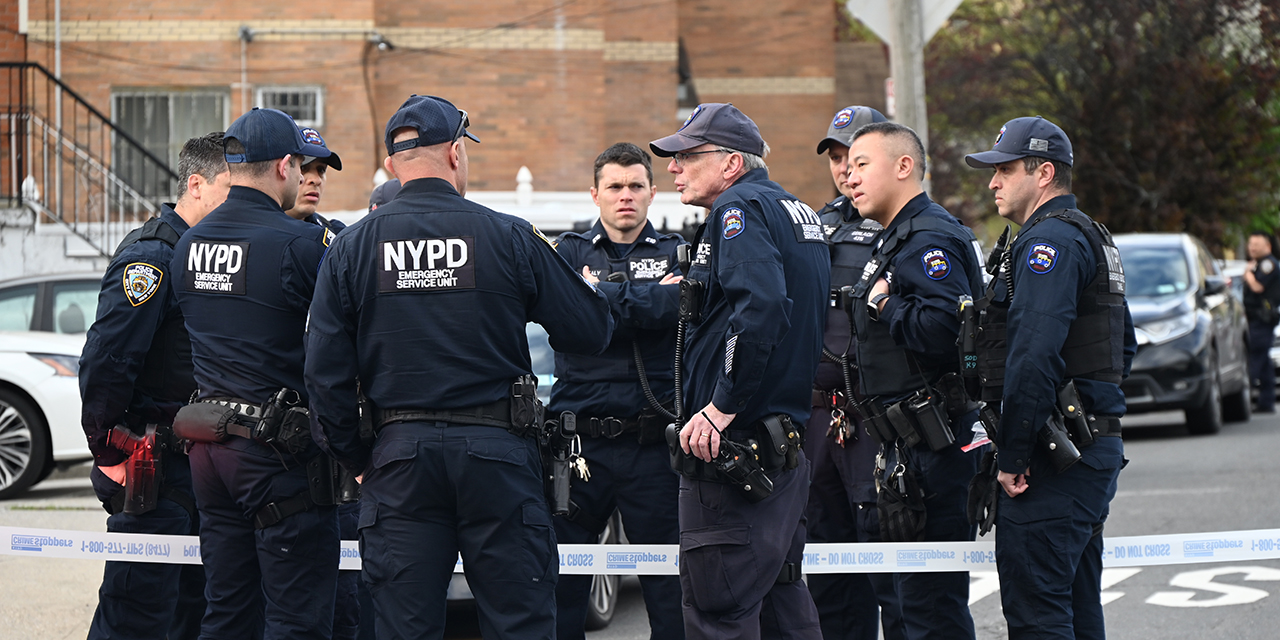Public safety has been destroyed in many American cities because of an idea. That idea holds that any law-enforcement activity that has a disparate impact on black criminals is racist. Disparate impact is why many police departments have dismantled gang databases and antigun task forces, why they have given up on public-order enforcement, and why they have all but eliminated car stops. It is why “progressive” district attorneys have stopped prosecuting trespassing, shoplifting, fare evasion, and resisting arrest, why bail is being eliminated, and why judges let repeat offenders back on the street. Disparate impact is the reason that chain stores like Starbucks and Walgreens would rather close high-loss outlets than accost thieves.
Until the disparate-impact conceit is demolished, permanently restoring law and order will be impossible. Any short-term gains from renewed enforcement will remain vulnerable to the charge that they have come at the expense of racial equity. Conservatives can call for re-policing all they want. Unless they explicitly discredit the idea that incarcerating black criminals is racist, however, Democratic politicians and policymakers will be able to use disparate rates of stops and arrests to roll back constitutional crime control whenever they have the power to do so.
Only a president has the national reach to engage this most difficult of all “conversations about race.” If the next president does not have the fortitude to do so personally, his attorney general should assume the responsibility. The next AG should lay out in a national speech the dilemma facing law enforcement: in order to save black lives, police officers will have to stop and arrest black criminals in numbers greatly disproportionate to the black share of the population. He should give the victimization facts: black juveniles were shot at 100 times the rate of white juveniles since the George Floyd race riots; blacks between the ages of ten and 24 were killed in gun homicide at 24 times the rate of whites in that age cohort. Those black victims are not being gunned down by America’s alleged white supremacists or by the police; they are being gunned down by other blacks, at rates equally disproportionate to the black population share. Providing justice to those black victims will require putting more black criminals in prison.
The next attorney general should challenge Black Lives Matter activists to say the names of the dozens of black children slain in drive-by shootings by blacks since the 2020 George Floyd riots. When Al Sharpton and civil rights attorney Benjamin Crump came to Minneapolis to commemorate the first anniversary of Floyd’s death, why, the attorney general should ask, did they avoid a hospital in North Minneapolis where a ten-year-old boy and a nine-year-old girl were in adjacent rooms, having both been shot in the head in separate drive-bys? The girl died a few days after the Sharpton-Crump visit; the boy will be disabled for life. Their lives mattered, too, but they are of no interest to the race agitators.
Well-meaning Americans also turn their eyes away from black crime, in deference to racial etiquette. Such etiquette, however understandable, is costing lives. It will continue to do so unless the next presidential administration tells the truth about law enforcement and crime. Only then will the police be able to protect safety without the false stigma of racism.
Photo: Evgen_Prozhyrko/iStock






